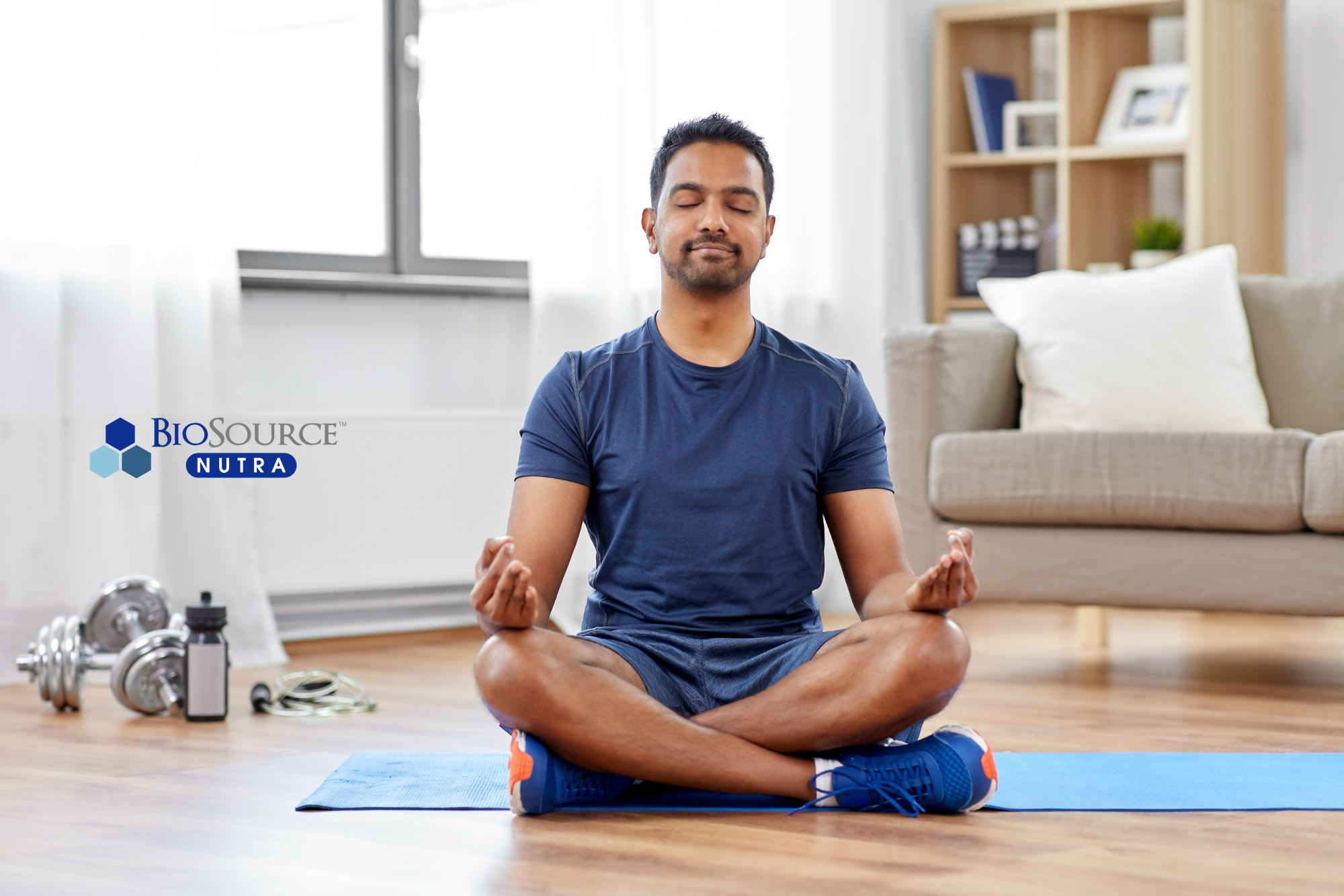Stress Less, Live More: The Power of Mindfulness in Cultivating Well-Being

Mindfulness and mental health are just as important to your well-being as physical health and exercise.
In today's fast-paced world, stress has become a common companion for many. Finding tranquility amidst the chaos may seem challenging, but mindfulness offers a potent solution. This practice, rooted in ancient traditions yet perfectly suited for modern stress relief, involves being fully present and engaging with our thoughts and sensations without judgment. Imagine transforming your mind from a cluttered room into a serene space, where worries about the past and future are acknowledged but not allowed to overwhelm. By concentrating on the present, mindfulness not only helps declutter our thoughts but also enhances emotional regulation, focus, creativity, and overall well-being, inviting calm and clarity into our lives. Whether you're new to mindfulness or have been practicing for years, embarking on this journey can open the door to appreciating life's simple joys and navigating the world with a lighter heart.
How Mindfulness Can Reduce Stress
One key benefit of mindfulness for stress reduction is that it can help calm the mind and promote relaxation. Mindfulness techniques such as meditation, deep breathing, and body scans reduce stress. These techniques help slow down the body's physiological response to stress, which can help lower cortisol levels and promote a sense of calm.
A growing body of scientific evidence supports mindfulness's effectiveness in reducing stress. Studies have shown that regular mindfulness practices can help to reduce symptoms of anxiety and depression, improve sleep quality, and enhance overall well-being. Additionally, mindfulness has positively impacted physical health, reducing inflammation and boosting the immune system.
The beauty of mindfulness is that it's accessible to everyone. You don't need any special equipment or experience to get started. Here are some mindfulness tips to incorporate into your daily routine:
- Mindful breathing: Take a few minutes daily to focus on your breath. Feel your belly rise and fall with each inhale and exhale.
- Body scan: Close your eyes and focus on different body parts, noticing any sensations without judgment.
- Mindful moments: Throughout the day, pause to observe your surroundings – the sights, sounds, and smells.
Mindfulness for Emotional Well-Being
Life throws curveballs; sometimes, our emotions can feel like a runaway train. Mindfulness offers a powerful tool to regain control and navigate challenges more easily. But what exactly is mindfulness, and how can it improve our emotional regulation, resilience, and coping skills?
Here's how mindfulness strengthens our emotional well-being:
Emotional Regulation
Mindfulness helps us recognize our emotions as they arise. Instead of being swept away by them, we can observe them objectively. This space allows us to choose a more constructive response, like taking a deep breath or calming self-talk, instead of letting anger or frustration dictate our actions.
Resilience
Life is full of setbacks. Mindfulness cultivates resilience by fostering a sense of acceptance. We learn to acknowledge challenges without becoming overwhelmed. This allows us to bounce back from adversity faster and maintain a positive outlook even in difficult situations.
Coping Skills
Mindfulness equips us with a toolbox of healthy coping mechanisms. Meditation and mindful breathing can help manage stress and anxiety, promoting emotional calmness. By being present in the moment, we can focus on solving problems rather than dwelling on worries or ruminating on the past.

Meditation can seem overwhelming when you first begin, but you can start small by simply setting a timer for 2 minutes and focusing on your breathing.
Practical Tips for Everyday Mindfulness
Do you ever feel you're living on autopilot, not fully experiencing each moment? Your answer to living a more affluent and present life may lie in practicing mindfulness. Rather than reaching a mystical condition, the goal is to softly bring your awareness to the present moment.
The best part? You can cultivate mindfulness with simple practices woven into your daily routine. Here are some encouraging tips to get you started:
Start Small, Start Now
Don't feel pressured to devote hours to meditation. Begin with short, manageable exercises. Set a timer for 2 minutes and simply focus on your breath. Notice the rise and fall of your chest, the coolness of the air entering your nostrils.
Greet Your Day with Mindfulness
Before diving into the daily whirlwind, take 5 minutes for quiet contemplation. What sounds greet your ears? Feel the fabric of your pajamas against your skin. Savor the warmth of your morning coffee – taste, smell, and all.
Transform the Mundane
Turn everyday activities like walking or washing dishes into mindful experiences. Pay attention to how your body moves, the feel of the water on your hands, and the rhythm of your breathing. You might be surprised by the beauty found in the ordinary.
Staying Present: You've Got This!
Our minds naturally wander – that's what they do! When you find yourself lost in thought, don't get discouraged. Simply acknowledge it with a gentle "Ah, there goes my mind again," and gently bring your attention back to the present moment.
Think of your breath as an anchor. When your mind gets carried away, focus on the feeling of your breath entering and leaving your body. It's a simple yet powerful way to center yourself.
Sometimes, distracting thoughts pop up like insistent visitors. That's okay! When this happens, try "labeling" them in your mind – "thinking about work," "feeling hungry." This simple act creates space between you and the distraction, letting you let it go without getting caught up.

Being mindful does not mean you have to be serene and peaceful 100% of the time. Our emotions make us human; don't judge your emotions, just feel them.
Managing Emotions: You're Not Alone
We all experience emotions, and that's perfectly okay! The key is to be mindful of them in a supportive way. Instead of judging yourself for feeling stressed or overwhelmed, simply acknowledge the emotion with a kind, non-judgmental attitude: "I'm feeling stressed right now. That's understandable."
Think of yourself as a curious observer. Observe your emotions with the same detachment you might use to watch a cloud drift by. Notice the physical sensations associated with the emotion, like tight chest or shoulder tension.
Deep, slow breaths can be your calming superpower when strong emotions arise. Focus on your breath, allowing the emotion to pass through you like a wave.
Remember, Be Kind to Yourself
Cultivating mindfulness is a journey, not a destination. There will be days when your mind wanders or you get caught up in emotions. That's completely normal! Be patient with yourself and gently bring your attention back when you notice it's drifted.
Sharpen Your Focus at Work
- Tame your wandering mind. Set an intention before each task for laser focus and increased productivity.
- Short, mindful breathing breaks can refresh your focus and energy.
- Listen deeply in meetings. Put away distractions and connect with colleagues through mindful communication.
Deepen Your Relationships
- Give the gift of listening. Truly hear your loved ones by offering your full attention.
- Develop empathy. See things from their perspective to strengthen your connections.
- Be present and create lasting memories. Savor quality time with loved ones, free from distractions.
Nourish Yourself with Mindfulness
- Savor your food. Eat mindfully, appreciating the flavors and textures of each bite.
- Move with intention. Whether it's a walk or a dance session, be present in your body and enjoy the movement.
- Take tech breaks for a mindful reset. Disconnect to de-clutter your mind and recharge.
Ready to embark on your mindfulness journey? Start by trying out the simple techniques mentioned here. Take a mindful breath at work, truly listen to a loved one, or savor your next meal.
Share your experiences, questions, or insights in the comments below or on social media using #BSNMindfulMoments! Let's create a supportive community where we can all learn and grow together on this path to greater peace and clarity.
For more information on mindfulness and a healthy lifestyle, check out these articles:
Creating a Mindful Morning Routine for a Productive Day
